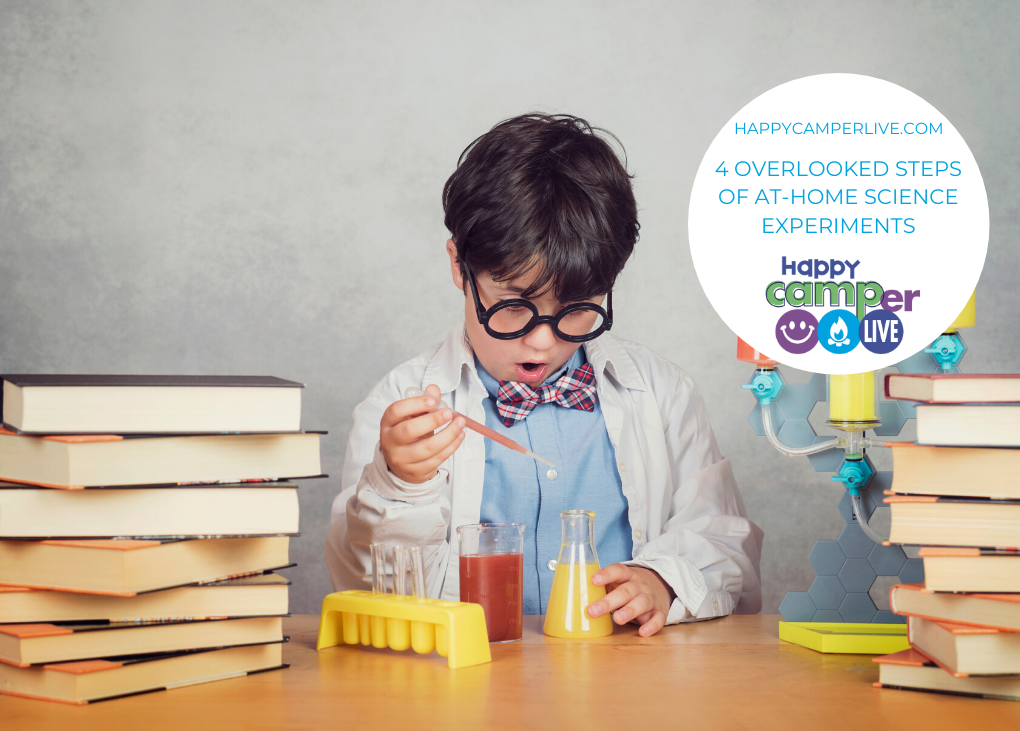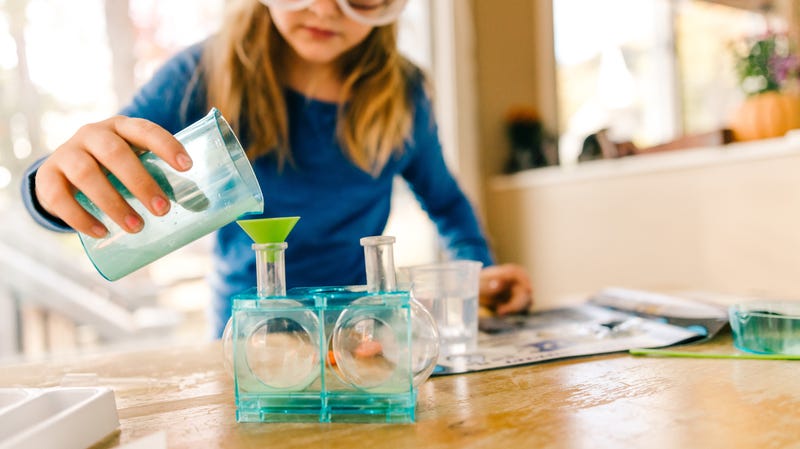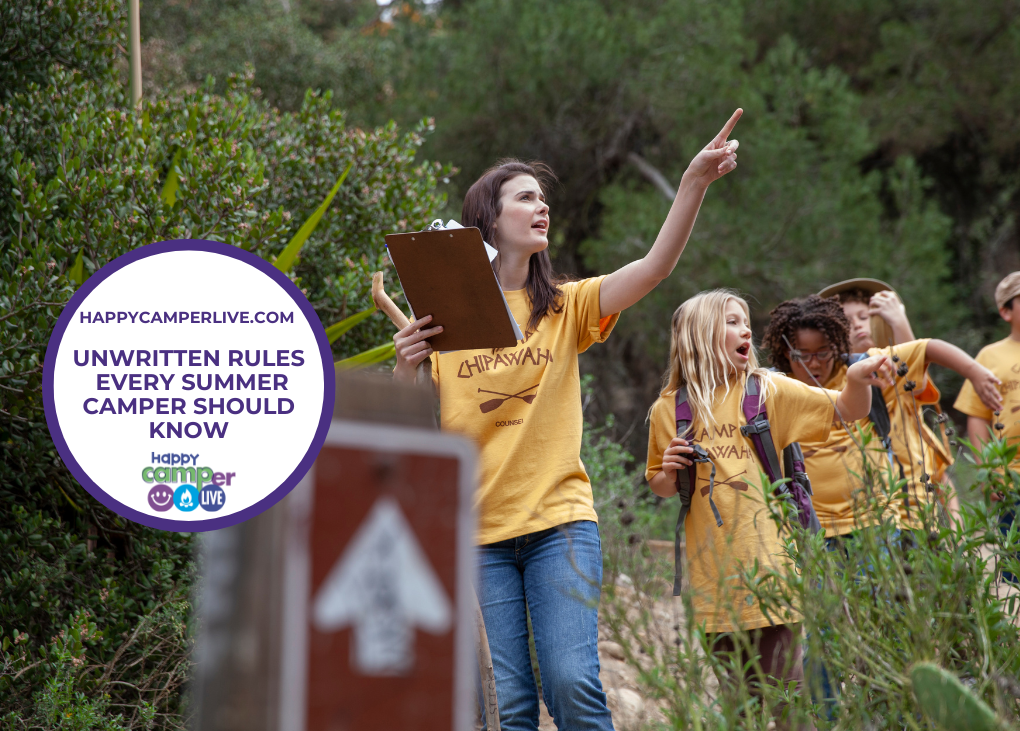
Activities
Family activities
Science
4 Overlooked Steps of At-Home Science Experiments
Written By: happycamperThere are a number of fun activities that you can do from the comfort of your own home, and some of them are even educational. Take science experiments, for example. Not only are they exciting and interactive, but they also help us understand the world we live in. Science experiments are a great way for campers to learn about a new field of knowledge while having tons of fun along the way!
But as fun as science experiments can be, it’s common to rush through the process in order to get to the fun part. Here are 4 overlooked steps that are essential for a successful science project:

Here are a few steps to help your at-home science project go smoothly:
Do your research and pick the right experiment
There are so many interesting science experiments that you can choose to do, but make sure you know what you’re getting into. The best way to make an informed decision about the best type of science experiment for you is to do plenty of research. Spend some time researching what materials are required, how many people are needed to safely do the experiment, and what kind of reaction to expect.
For example, if you’re doing the experiment with younger campers, avoid dangerous chemicals, sharp objects, and explosive reactions. Although these types of experiments are often the most thrilling, they can be unsafe for campers who don’t have experience with hands-on projects. Simpler experiments, like building a snow globe or bowl of slime, are still very exciting and highly informative.
On the other hand, some science experiments can be too simple for older campers. These experiments are often boring and a poor use of time. Campers with a fundamental understanding of basic scientific concepts should challenge themselves to try experiments that will expand their knowledge. As long as they are aware of the safety guidelines, older campers can work with complex experiments like making a carbon sugar snake or building a lava lamp.
It’s worth it to put in the extra time to find an experiment that’s perfect for YOU! For some great project ideas, click here, or visit the Happy Camper Live website for more information.
Gather the materials well ahead of time

Once you’ve decided on an experiment, you’ll need to gather your materials. Most materials are always in stock at local grocery and craft stores, but some specialty items may only be available online. Depending on the type of experiment, goggles and/or gloves may be necessary. Err on the safe side by purchasing more safety materials than you need. Better safe than sorry!
In addition, experiments that involve chemical reactions often require specific chemicals that can only be found online and take weeks to arrive. Gather your materials days in advance so you’re not scrambling at the last minute. After all, science experiments should be fun, not stressful.
Be prepared for a mess
When it comes time to do the experiment, it’s common to forget about the aftermath. Don’t make the mistake of getting glue stuck in the carpet or spilling chemicals on your furniture. Find a space where you won’t mind making a mess – backyards, driveways, and garages work great. It’s sometimes helpful to layout a tarp or disposable mat underneath the table you’re working on. Avoid bringing any food or drink to your workspace – not only is it a distraction, but it’s unsafe to eat and drink when working with science materials. Following these simple precautions will make your experience so much better.
But sometimes it’s not possible to avoid making a mess, so you should be prepared for the worst. Keep soap and bleach on hand to remove stains and plenty of paper towels to sop up liquid. Of course, if you spill any chemicals, immediately dispose of the materials used to clean them up.
Understand the science behind the results
Unfortunately, this is a step that is skipped too often, even though it may be the most important.
After you’ve completed the experiment, you need to try to understand what happened. Talk about which materials worked together to produce the exciting results, and why each material was necessary for the project. Read an article or watch a YouTube video where the science behind the experiment is explained. Ask and answer questions about what you just saw. Understanding what happened is a valuable part of the process that emphasizes the awesome aspects of nature and science, and makes the whole experience educational and worthwhile.
Remember these simple steps, and you’re sure to have a great science experiment! Good luck!
Tagged:- activities for kids, activities for kids to try at home, science camp, science experiments for kids, summer camp activities
RELATED ARTICLES

Campers
Unwritten Rules Every Summer Camper Should Know
As the sun rises higher in the sky and school winds down for the year, anticipation fills the air for the countless kids eagerly awaiting the start of summer camp. Whether you’re a seasoned camper or embarking on your very first adventure in the great outdoors, there are certain unwritten rules that every camper should […]
Family activities
Selecting the Perfect Travel Trailer for Families: A Comprehensive Guide
The anticipation of a family adventure begins with the selection of the perfect travel trailer. Embarking on such journeys not only strengthens the bonds between family members but also introduces children to the wonders of the natural world. It’s an invaluable opportunity for families to spend quality time together, disconnected from the digital world and […]
Read More...
Activities
Campers
Breaking The Ice: Socializing Tips For The First Day Of Camp
Embarking on a new adventure at summer camp can be simultaneously thrilling and nerve-wracking. Whether you’re a first-timer or a seasoned camper, the first day can be filled with a mix of excitement and apprehension, especially when it comes to meeting new people. But fear not! With a few simple tips and tricks, you’ll be […]
Read More...
Campers
Navigating Homesickness: Tips For Parents And Campers
Homesickness is a natural part of growing up, but for both parents and campers, it can feel like a daunting challenge to overcome. Whether it’s your child’s first time away at camp or they’re seasoned campers, homesickness can strike unexpectedly and create feelings of anxiety and longing for home. However, with the right approach and […]
Read More...
Campers
Parents
A Parent’s Guide To Camp Health And Safety Protocols
With summer fast approaching, many parents are beginning to plan their children’s summer activities, including the beloved tradition of summer camp. As a parent, ensuring the health and safety of your child is paramount. To help ease your mind and empower you to make informed decisions, let’s explore some essential health and safety protocols to […]
Read More...
HAPPY CAMPERS
5 Summer Camp Games To Play At Home
Read More...
How to Tell A Good Camp Story
Read More...
4th Of July Activities For Kids
Read More...
What Should a Holistic Preschool Experience Look Like for Your Child?
Read More...
categories
Activities (191)
Arts and crafts (55)
Camp stories (11)
Camp traditions (20)
Campers (86)
Cooking (33)
Education (4)
Family activities (76)
Featured camps (12)
Gift Guides (11)
Music (9)
Outdoor adventure (28)
Parents (61)
Podcast (25)
School (13)
Science (9)
Sports (32)
STEM (5)
Water sports (1)


